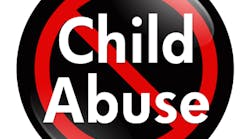Hearing the silent cry for help: recognizing the signs of child abuse
It has been shown that the issue of education for healthcare providers is particularly important, as it increases the rates at which clinicians report suspected abuse.The overall findings of research shows, in general, all healthcare professionals have low rates of reporting. However, clinicians with more education on the matter suspect abuse more often.(2) Most physicians receive minimal training when it comes to oral health or the oral cavity, therefore, they may not notice the oral aspects of abuse or neglect. Dental offices may want to consider collaborating with local physicians to increase the detection and prevention of this tragic event.(3)
April is National Child Abuse Prevention month. Children in trouble may be screaming for help; hear their silent cry. Be part of the solution, be aware, report. Please don’t ask "What if I’m wrong," ask "What if I’m right."
* * Editor’s Note: April is National Child Abuse & Prevention Month. However, this issue deserves our attention everyday throughout the year. Kudos Linda!
RELATED | Dental professionals are important allies against child abuse
References
1. Mouden LD, Bross DC. Legal issues affecting dentistry’s role in preventing child abuse and neglect. J Am Dent Assoc 1995;126:1173-80.
2. Tilden VP, Schmidt T A, Limandri B J, Chiodo G T Garland, M J, and Loveless P A. Factors that influence clinicians' assessment and management of family violence. Am J Public Health. 1994 April; 84(4): 628–633.
3. American Academy of Pediatrics Committee on Child Abuse and Neglect; American Academy of Pediatric Dentistry; American Academy of Pediatric Dentistry Council on Clinical Affairs. Guideline on oral and dental aspects of child abuse and neglect. Pediatr Dent. 2008-2009;30(Suppl):86-89.
4. Delta Dental P.A.N.D.A. MidAtlantic P.A.N.D.A. http://www.midatlanticpanda.org/.
5. https://www.theonlinelearningcenter.com/dental-continuing-education.aspx.
Internet resources
1. https://www.childwelfare.gov/.
2. http://www.childhelp-usa.com/.
3. http://www.childhelp.org/pages/hotline-home.
4. Philips Learning Center. https://www.theonlinelearningcenter.com/dental-continuing-education.aspx.
5. https://www.deltadentalmo.com/AboutUs/PANDA.
Linda Blackiston, RDH, BS, is a manager of Professional Education for Philips Oral Healthcare. She volunteers with Mid-Atlantic PANDA (Prevent and Abuse Neglect Through Dental Awareness) providing courses on recognizing and reporting cases of abuse and neglect. Linda serves on The Samaritan Women board of directors; which is a long-term restoration program for victims of human trafficking. She also volunteers educating the community on human trafficking issues.








